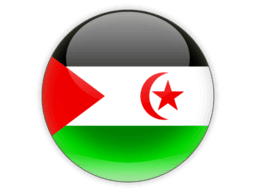
Western Sahara is a disputed territory located in North Africa, bordered by Morocco to the north, Algeria to the northeast, and Mauritania to the east and south. The territory has been claimed by both Morocco and the Polisario Front, which seeks to establish an independent state in the region. The dispute dates back to the late 19th century, when Spain occupied the area, and it continued after Spain's withdrawal in 1975.
Since then, the area has been the site of sporadic fighting between the Moroccan military and the Polisario Front, which established a government-in-exile, the Sahrawi Arab Democratic Republic (SADR), in 1976. The SADR is recognized by several dozen countries, mostly in Africa and Latin America, but Morocco maintains that Western Sahara is an integral part of its territory.
The United Nations has been involved in efforts to resolve the conflict since 1991, when a ceasefire was declared between the Moroccan military and the Polisario Front. The UN Mission for the Referendum in Western Sahara (MINURSO) was established to monitor the ceasefire and oversee a referendum on the territory's future status. However, the referendum has yet to be held due to disagreements over who should be allowed to vote.
Meanwhile, the territory's population, which is estimated to be around 500,000, continues to live in poverty, with limited access to basic services and economic opportunities. The exploitation of the region's natural resources, including phosphate deposits and fishing grounds, remains a contentious issue, with the Polisario Front claiming that Morocco is illegally exploiting the resources without the consent of the Sahrawi people.
The future of Western Sahara remains uncertain, with both sides showing little willingness to compromise on their respective positions. International efforts to resolve the conflict continue, but a lasting solution has yet to be found.
Mark Western Sahara as Visited
Add Western Sahara to your personal travel map and track your journey around the world. Share your adventures and see your progress grow!